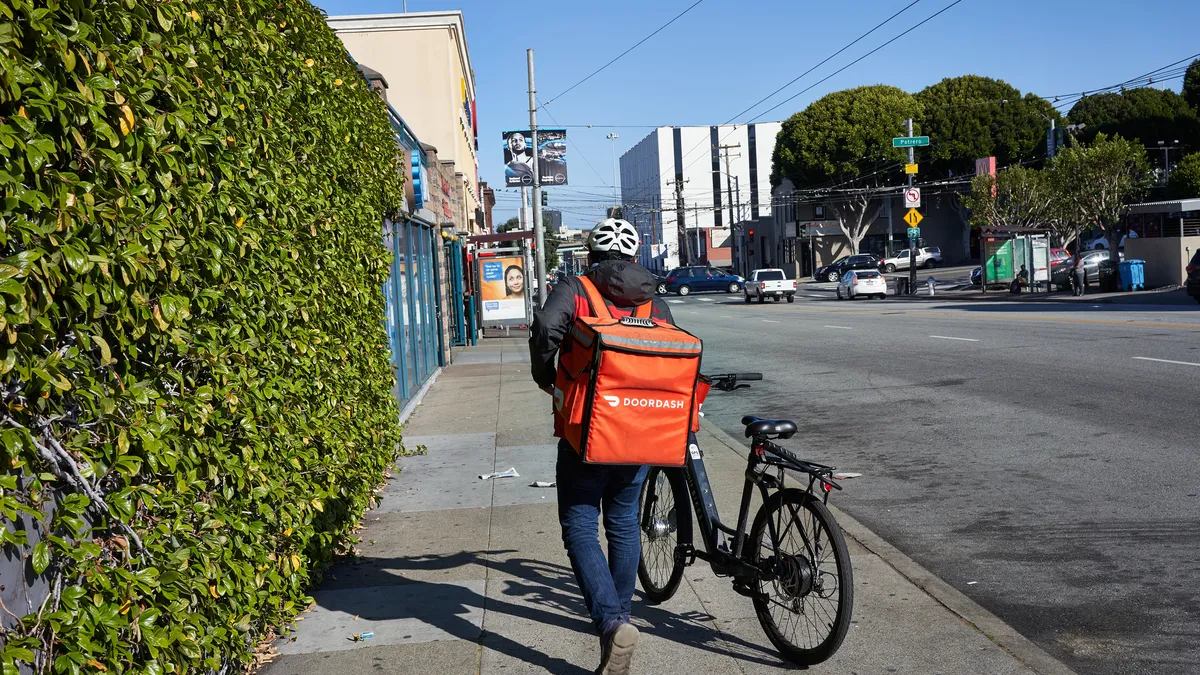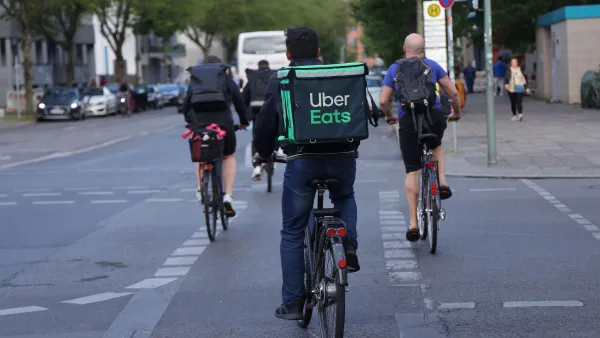Dive Brief:
- Boston Mayor Michelle Wu has filed an ordinance with Boston’s city council that would require third-party food delivery services like Uber Eats, DoorDash and Grubhub to obtain a permit to operate in the city, Wu’s office said Monday.
- In order to obtain a permit under the proposed law, aggregators would have to give the city proof that its delivery operators — including couriers who make deliveries on mopeds, electric scooters and motorcycles — have liability insurance. The delivery companies would also be required to “share aggregate data on delivery trips.”
- Small businesses with a small number of delivery workers, and delivery firms like UPS, FedEx and Amazon, would be exempt from the ordinance, Wu’s office said.
Dive Insight:
Wu framed the ordinance as a way to disincentivize risky driving during deliveries.
The Mayor’s office said such legislation was necessitated by an increase in complaints about traffic and congestion; illegal double parking; and reckless and unsafe delivery drivers on scooters, mopeds, motorbikes and e-bikes over the past year. The policy is intended to provide insurance for un- and underinsured delivery workers.
The proposed law will have to pass through Boston’s legislative process before it becomes law. It would be a step toward “making app deliveries safer for our city’s pedestrians and drivers on our streets, and toward ensuring delivery app drivers have insurance coverage from the large, national companies they work for,” Wu said in a statement.
Jascha Franklin-Hodge, Boston’s chief of streets, said “we hope to create an incentive for these companies to encourage safer driving instead of the current incentive–speed at all costs.”
Restaurant delivery firms have already signaled political opposition. A DoorDash spokesperson indicated the company disagreed with the thrust of the law, claiming it would not meaningfully improve the safety of delivery drivers or the general public. DoorDash also claims the ordinance would raise costs, which firms would pass on to consumers as price hikes.
“We plan to continue working closely with Boston policymakers to help them understand the consequences of this ordinance and find more practical solutions,” the spokesperson wrote in an email to Restaurant Dive. The spokesperson said the company has previously worked with Boston to reduce traffic congestion by encouraging a shift away from car delivery toward other modes of transit.
Over the last couple of years, as inflation and corporate profits both rose, price hikes have emerged as an important ideological tool for restaurants and restaurant tech firms looking to beat back local regulations.
Alongside this rhetoric, companies have also changed policies in locales pursuing regulation. In New York, for example, DoorDash moved tipping prompts to appear in its app after checkout, a strategy the company said was a direct response to New York City’s delivery worker wage rules.
Delivery firms have also turned to courts to void regulatory requirements. In September, DoorDash and Uber Eats won a court battle against a New York City law that would have required aggregators to share certain customer data with restaurants on request.















